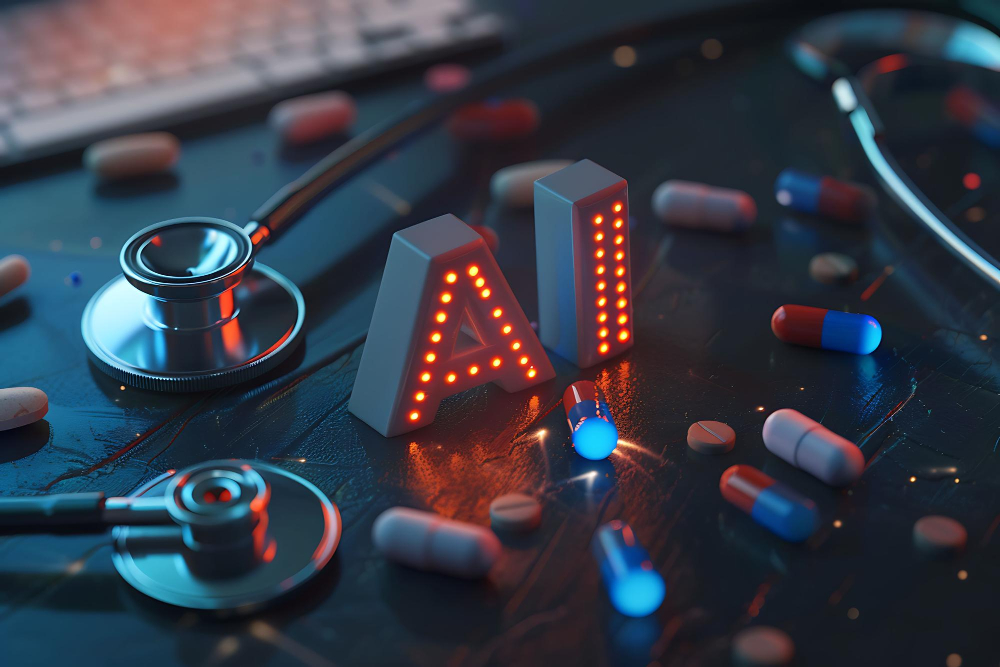- Blog
- September 12, 2023
Drug Discovery: The Pivotal Role of Generative AI

- Blog
- September 12, 2023
Drug Discovery: The Pivotal Role of Generative AI
The field of drug discovery is a complex and time-consuming endeavor. Developing new drugs to combat diseases and improve human health demands extensive research, testing, and analysis. In recent years, Generative AI has emerged as a transformative force in expediting drug discovery processes. This blog explores how Generative AI is revolutionizing the pharmaceutical industry, accelerating new drug development, and bringing hope for more effective treatments.
Generative AI in Drug Discovery
Generative AI, a facet of artificial intelligence, centers on the creation of data, content, and tangible objects. It harnesses the capabilities of deep learning models to produce fresh, contextually relevant information by recognizing patterns and leveraging the knowledge it has acquired. In the realm of drug discovery, Generative AI models undergo training using extensive repositories of chemical compounds, biological information, and clinical research to forecast potential drug candidates. This enables the rapid identification of promising compounds and significantly expedites the drug development process.
Unlock limitless potential with Gen AI Services
The five key role of Generative AI in Drug Discovery

1. Accelerating Molecular Design
Generative AI models can design and propose novel molecular structures for potential drugs. These models analyze chemical databases, predict molecular properties, and propose new compounds with desired characteristics, such as high binding affinity to target proteins and low toxicity. This greatly expedites the early stages of drug discovery.
2. Target Identification and Validation
In the realm of drug discovery, pinpointing and validating appropriate drug targets stands as a pivotal phase. Generative AI excels in this arena by sifting through massive datasets of biological information, encompassing genomics and proteomics, to pinpoint potential targets associated with specific diseases. Furthermore, it goes the extra mile by predicting the viability of targeting specific proteins or pathways, thereby mitigating the risk of pursuing futile drug candidates. This capability streamlines the drug development process and significantly enhances its success rate.
3. Predicting Drug-Drug Interactions
Understanding how drugs interact with each other is essential to avoid harmful side effects and optimize treatment regimens. Generative AI models can predict potential drug-drug interactions by analyzing chemical structures and known drug interactions, ensuring safer and more effective combination therapies.
4. Repurposing Existing Drugs
Drug repurposing involves finding new therapeutic uses for existing drugs. Generative AI can identify potential repurposing opportunities by analyzing vast datasets of drug properties and known clinical outcomes. This approach can significantly reduce the time and costs associated with drug development.
5. Personalized Medicine
Generative AI can contribute to the development of personalized medicine by analyzing an individual’s genetic makeup and clinical data to predict the most effective treatment options. This tailored approach enhances treatment outcomes while minimizing adverse effects.
Challenges and Ethical Considerations
While Generative AI holds tremendous promise for drug discovery, it also presents challenges. Ensuring the safety and efficacy of AI-generated drug candidates, addressing data biases, and maintaining ethical standards are critical considerations in this evolving field.
Conclusion
Generative AI stands as a groundbreaking force in the realm of drug discovery, reshaping the conventional approach to molecular design, target identification, and drug repurposing. This transformative technology isn’t just accelerating the drug development process; it’s also streamlining costs. As we continue to witness remarkable advancements in technology, Generative AI offers the potential for revolutionary breakthroughs in medical research. These advancements are poised to pave the way for more potent treatments, ultimately leading to improved patient well-being. The integration of Generative AI into drug discovery heralds a promising future that is distinctly original and visionary.




